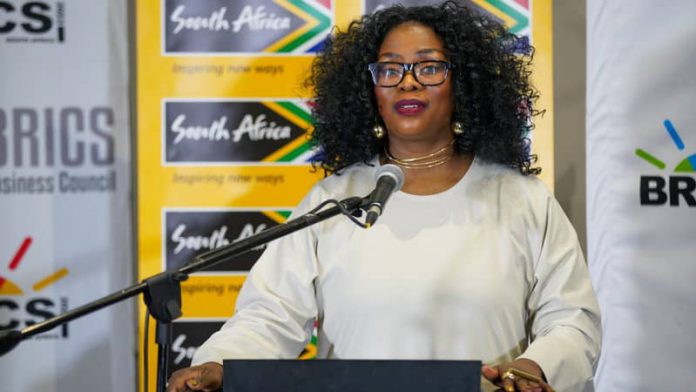Working at reducing the trade deficit between South Africa and its BRICS counterparts, Brazil, Russia, India, China – while establishing strategic economic partnership to expand trade is key, according to the BRICS Business Council.
This view was emphasised at the BRICS Business Editors’ Breakfast in Johannesburg yesterday ahead of the BRICS Summit taking place at the Sandton Convention Centre in Johannesburg from August 22-24, under the theme: “BRICS and Africa: Partnership for Mutually Accelerated Growth, Sustainable Development, and Inclusive Multilateralism.”
Stavro Nicolaou, a member of the BRICS Business Council, said the statistics showed that South Africa was benefiting from BRICS.
“As we begin to mature as a BRICS formation across the five markets, it is important to see what the trade patterns look like and see how South Africa can benefit from export opportunities,” he said.
South Africa ran a trade deficit with the four BRIC partners. Trade deficits were to be expected and should be seen as a positive business, commercial trade and investment opportunity, Nicolaou said.
Sihlobo said BRICS was an important trade market. Brazil, South Africa and Russia typically had, in surplus, a large produce of products that India and China import from the world market.
“A united BRICS on the trade front has the potential to increase trade volumes from beyond just five member states. This would potentially bring trade flows into BRICS from other associate members such as Asia, South America and eastern Europe,” he said.
The BRICS Business Council supported the need for advancing trade to broaden and deepen the relationship to tangible economic benefits for member countries, Sihlobo said.
Mpumi Mpofu, representing Aviation, outlined that this working group aimed within five years to establish a multilateral open skies dispensation for BRICS countries linked to a Single African Air Transport Market.
This as aviation played a major role in ensuring growth of trade facilitation of AfCFTA, growing tourism within BRICS as well as collaborating on airport development and management, among other initiatives.
David Jarvis, representing Financial Services, said this taskforce’s key deliverable was a White Paper on Central Bank digital currencies/stablecoin as a means of creating greater access to financing and reducing friction in payments. It had also developed a proposal for an SME fund to provide early-stage funding for small and medium enterprises.
Reinsurance was also on the agenda within BRICS markets. The taskforce was looking on access opportunities to BRICS reinsurers for African insurers. The taskforce had scheduled a Reinsurance Lekgotla during the BRICS Summit.
Jarvis also said they were looking at a methodology for a common sovereign rating methodology. South Africa would nominate an independent credit rating agency within the country to be part of the pilot to test the approach, he said.
Wendy Poulton, representing the Energy and Green Economy working group, said their approach focused on the availability of information to policy makers and investors, the need for innovation in key areas of the energy transition, the need for funding of the energy transition as well as collaboration and partnerships to leverage BRICS strengths.
The objective was to develop a BRICS Energy Skills roadmap that built the work done in South Africa and, ultimately, deliver a BRICS Skills Atlas.











